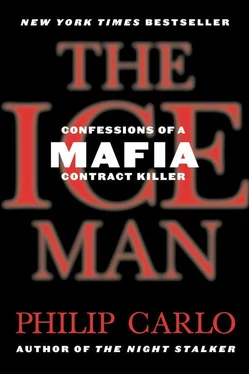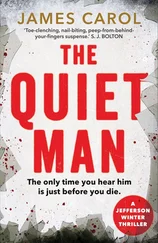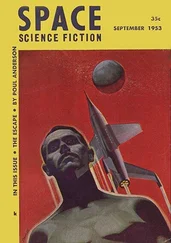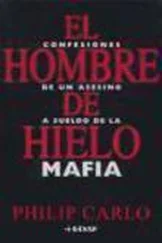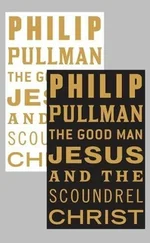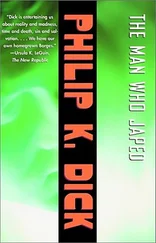The identity of the dead man was soon established. His family was contacted. Malliband’s brother said George had been going to meet Richard Kuklinski of Dumont the day he disappeared. The police questioned Richard. He, of course, said he knew nothing about the murder. But this was the first time he’d ever been connected to a homicide he’d done, though it didn’t go any further. It stopped, for now, right there.
Richard was mad at himself. He should have buried Malliband, dumped him down one of the bottomless holes in the caves, fed him to the rats. I must, he told himself, be more careful.
As much as Richard loved his home life, being a “family man,” he came to believe that being married, having children, was making him… soft, he explained, taking away the razor-sharp edge a professional killer must have. He vowed to be more careful. He would get his razor edge back. In a bad mood now, he had a temper tantrum in the house and began breaking things.
The cocaine from Brazil arrived and was delivered to a warehouse Gaggi and DeMeo had found in south Brooklyn, down by the waterfront, near the old armory.
Richard, seriously armed, was there to receive it. It was a lot more than he thought. The cocaine was on wooden skids, two of them, all neatly wrapped in plastic. Richard set up a cot for himself, put broken glass all over the floor, even installed two electronically activated beams at the entrance so no one could sneak in. He had to stay with the coke until it was picked up. Those were his orders. That night a few of DeMeo’s guys did show up and took the load away. Richard’s job was done. He soon received a big bag of money from DeMeo, minus what Malliband had owed, of course. But DeMeo didn’t charge any vig at all.
For months this went on flawlessly. The loads came in; Richard received and guarded them until they were picked up; a short while later he was given a bag filled with hundred-dollar bills. Richard was pleased. It was all working out well. Everyone was making money. There were no problems.
That soon changed.
DeMeo beeped Richard; they met near the Tappan Zee Bridge.
“We’ve got problems,” DeMeo said, “with the Brazilians.”
“What happened?” Richard asked, concerned.
DeMeo explained that he and Gaggi had found a better coke contact, Colombians out of Medellín, that sold coke for far less than the Mediro brothers, and DeMeo had not paid the Brazilians for the last load; furthermore, he wasn’t going to pay them, he said.
“How much is involved?” Richard asked, thinking this was a stupid thing for DeMeo and Gaggi to be doing. Why, he wondered, were these Italians always so greedy?
“Little more than half a million. And they… well, they threatened us.”
“Of course. Roy, these are serious guys. I wouldn’t fuck with them. Give them—”
“We ain’t,” he interrupted.
“And what do you want me to do?”
“Go there with a few of the guys and kill the cocksuckers,” DeMeo said.
“In Brazil?”
“Yeah.”
“Roy, Rio is a big place; I don’t know my way around.”
“I’ll send you with three of the guys.”
Richard thought about this. It was a risky proposition, he knew… but he liked the challenge, even the danger, of it. “If I go I want to do this by myself,” he said.
“Any way you think is best. There’s sixty large in it for you.”
“Okay,” Richard said, intrigued by the challenge, how the odds were stacked against him; his death wish was again coming into play.
“When can you go? The sooner the better,” DeMeo said.
“I’ll leave tomorrow,” Richard said. “That soon enough?”
“Good man,” DeMeo said, and hugged and kissed Richard. They both got back into their cars and went in opposite directions, Richard’s mind playing over, as if he were studying a giant life-and-death chess match, what he would do, how he would do it.
By now you know, he recently explained, what I liked most was the hunt, the challenge of what the thing was. The killing for me was secondary. I got no rise as such out of it at all… for the most part. But the figuring it out, the challenge—the stalking and doing it right, successfully—that excited me a lot. The greater the odds against me, the more juice I got out of it.
Gambling, it was all about gambling, I guess, you know, and I was betting my life, all I had; that was the bet. Me, alone, against them… I don’t mean these guys necessarily, the Brazilian brothers, anyone I was going up against. This involved me, only me—it didn’t put my family in danger at all. That I’d never do. Gamble with them. Their lives. Their well-being.
Richard didn’t seem to realize that he was, in fact, putting his family in jeopardy. Serious jeopardy. South Americans, as a matter of course, regularly strike at enemies’ families. For them it was the norm. For Richard it was anathema. For South Americans, the first, logical place to strike was to kill a man’s family, and it was, they knew, much more painful and lasting than even doing in the intended target.
Moreover, Richard didn’t seem to connect what he was doing to the full spectrum of calamities that could and would befall his family if he was found out. Such a thing was so painful for him, he didn’t think about it. Perhaps he couldn’t think about it. He pushed it away somewhere in a dark corner of his mind and left it there.
Getting weapons to Rio, Richard knew, would be the first order of business. That night he took apart two Italian automatics with silencers, put them in a wooden box, lined it with pieces of styrofoam. In the morning he mailed it and a box of nine-millimeter bullets to himself at the Copacabana Palace. (He was using a bogus name.)
As usual, he didn’t say one word to Barbara about where he was going or what he was doing. He kissed her so long, drove himself to Kennedy Airport, left his car in the parking lot, and boldly caught a Pan Am flight—of course first-class—directly to Rio de Janeiro.
The plane ran into a fierce thunderstorm and Richard was tossed about in his seat. He was a superstitious man, and he hoped the storm wasn’t some kind of bad omen. As much as Richard could like someone, he liked the Mediro brothers; he very much liked Eduardo’s little girl Yada. That weighed on him for a while, but he soon forgot about her. Richard was very good at compartmentalizing his feelings, and he focused his thoughts, his energy, on murdering the brothers and getting away with it unscathed. That was all that mattered. That was the job at hand.
He took a cab from the airport directly to the lovely Copacabana Palace, checked in under his false name, and went up to the luxurious room. It had a sweeping view of the beach, and Richard stood at the window admiring the tawny-colored beach and the beautiful nearly naked females all over the place.
The guns were supposed to arrive that day, but they never came. They were, no doubt, stolen by a customs agent, and now Richard was in Rio with no weapons, feeling as if he were in band with no instrument to play.
This was, of course, a dilemma. Richard knew no one here, didn’t speak a word of Portuguese, didn’t even know how to get to their home. He walked onto Copacabana Beach, down to the water’s edge, turned, and faced the bustling, steaming city. Using the giant Christ as a point of reference, Richard had an idea where the house was, but he had no car.
Perplexed, concerned, he walked all the way to the Ipanema district and back. He sat at a shaded outdoor café, ordered an iced tea, and watched the Brazilian people go about their fast-paced hot-blooded lives. Here it was like summer and the temperature was in the low nineties. The sun, so close to the equator, was much stronger than back in the States. Richard could see its searing heat rising from the black-and-white mosaic tiled sidewalk in sensuous undulating waves. He just sat there watching people, the gorgeous women, thinking this thing out.
Читать дальше
